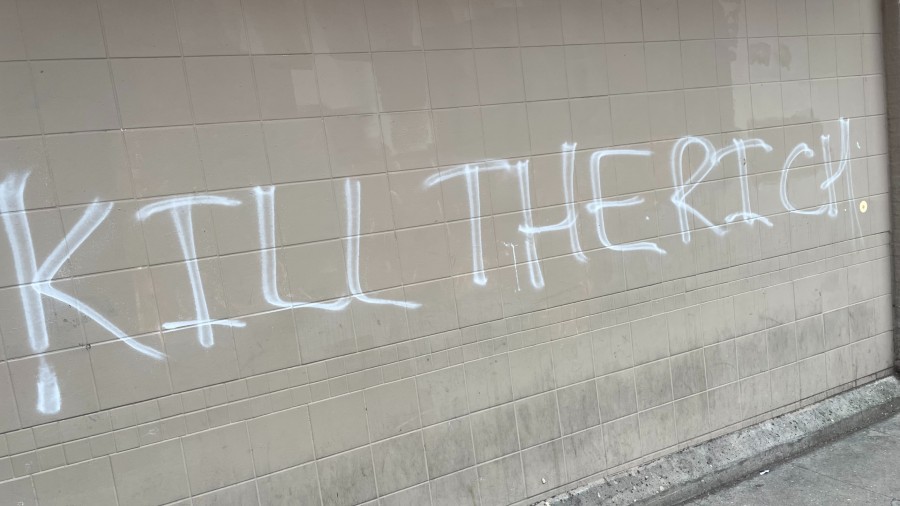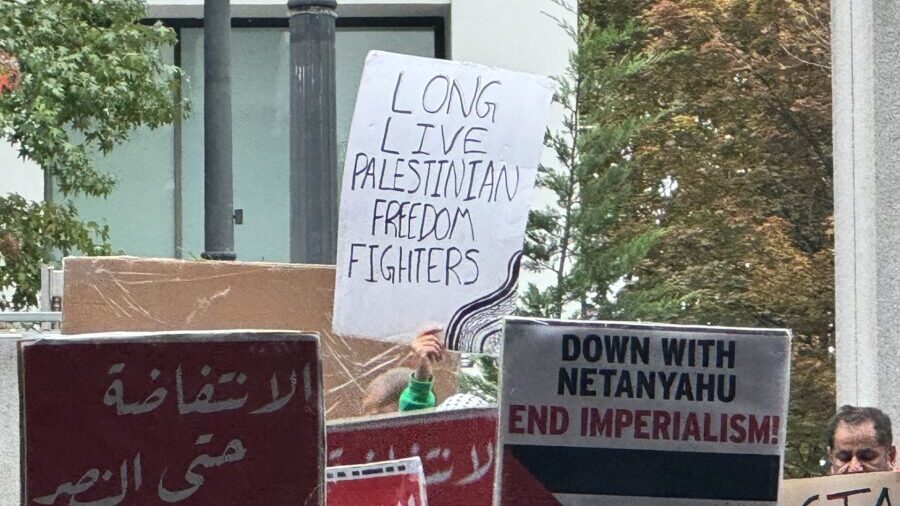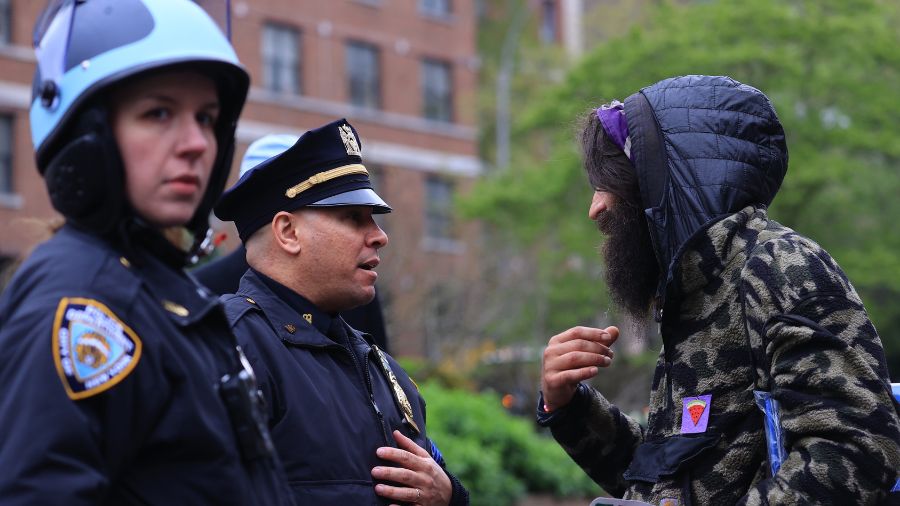Rantz: Seattle councilmember defends gang graffiti as ‘unsolicited creative expression’
Nov 14, 2022, 5:25 PM | Updated: Nov 15, 2022, 8:57 am
Seattle councilmember Teresa Mosqueda thinks gang graffiti and Antifa tagging is “unsolicited creative expression” and art. She thinks cleaning it up is just a handout to “for-profit graffiti removal businesses.”
The city of Seattle is inundated with graffiti, much coming from local gang members and Antifa thugs. It prompted a proposal by Mayor Bruce Harrell to implement a six-point program to clean it up. The program includes funding graffiti abatement and charging prolific taggers.
There are clear problems with Harrell’s plan. But Mosqueda expresses remarkably irresponsible and ignorant criticism.
Thank you to Paul Nunn of @Urban_ArtWorks for your insightful comment on graffiti abatement this morning. pic.twitter.com/DHTR2Sv40X
— Councilmember Teresa Mosqueda (@CMTMosqueda) November 8, 2022
Mosqueda effectively endorses gang graffiti
Police do not arrest taggers, and they won’t be booked. The Seattle Police Department is dangerously understaffed. More problematic, the Seattle City Attorney is unlikely to prioritize their prosecution, no matter how prolific.
While cleaning up the gang symbols and other tagging helps make the city feel safer, without proper enforcement, painting over graffiti is an extremely short-term solution. The Bartell Drug Store in Wallingford is routinely tagged by Antifa (or Antifa-sympathizing) thugs who regularly smear cops on the building’s exterior.
Mosqueda isn’t a fan of Harrell’s program, either. But she opposes it for laughable reasons. She sees nothing wrong with gang and Antifa graffiti. She endorsed what she thinks is an “insightful comment on graffiti abatement” by Urban Artworks project director Paul Nunn.
Early release policy at Arlington Schools leads to downtown disruptions
It’s not graffiti. It’s ‘unsolicited creative expression’
Nunn chastised the “purely punitive approach to erasing graffiti from the urban landscape” because he would rather incentivize what he’s pretending is art.
Indeed, he argues tagging is merely “unsolicited creative expression” and not “truly detrimental vandalism.” Tell that to businesses that are tagged with gang symbols and messages calling cops murderers.
Businesses overwhelmed with graffiti often see fewer customers. No one wants to frequent a restaurant, for example, covered in gang signs. And it’s not especially welcoming walking into a coffee shop tagged with “ACAB” at its entrance. Those businesses, many struggling to survive due to the area’s crime surge, are burdened with the costs of cleaning it all up. Mosqueda doesn’t seem to mind.
I mean … how dumb is this?
Pretending that graffiti is merely harmless unsolicited art is stunningly obtuse. Mosqueda wouldn’t hold the position if she found a pro-life graffiti message on her property.
Like Socialist Kshama Sawant calling the police she tried to defund when poop was thrown at her home, Mosqueda would get the “unsolicited art” removed from her property within hours and would likely demand a police investigation.
In fairness to Mosqueda, if her council office were tagged at City Hall, she wouldn’t clean it up. Not out of her principled stance against giving tax dollars to for-profit graffiti cleaners, of course. After all, Mosqueda doesn’t go to the office to work. She is still using COVID rules to work from home in her pajamas. She wouldn’t even see the tagging.
Nevertheless, the graffiti that Harrell seeks to clean up isn’t art. Murals are art. Tagging gang signs express one’s commitment to violence and intimidation.
Rantz: Police-defunding Seattle CM demands protection as residence targeted by feces
Equity agenda at work
A left-wing equity movement informs Mosqueda and Nunn’s positions.
Taggers, whether or not in a gang, are typically youth. Progressives do not want to punish the youth because they think young people, especially racial minorities, are victims of a white supremacist criminal justice system. And they argue that entering the criminal justice system only leads to worse outcomes. Sometimes that’s true.
But activists, like Mosqueda, believe the criminal justice system is literally never the answer. It’s what keeps dangerous, violent kids on the streets reoffending. Punitive measures can stop a teen’s criminal activity from escalating.
Listen to the Jason Rantz Show on weekday afternoons from 3:00 p.m. – 6:00 p.m. on KTTH 770 AM (HD Radio 97.3 FM HD-Channel 3). Subscribe to the podcast. Follow @JasonRantz on Twitter, Instagram, and Facebook. Check back frequently for more news and analysis.



















